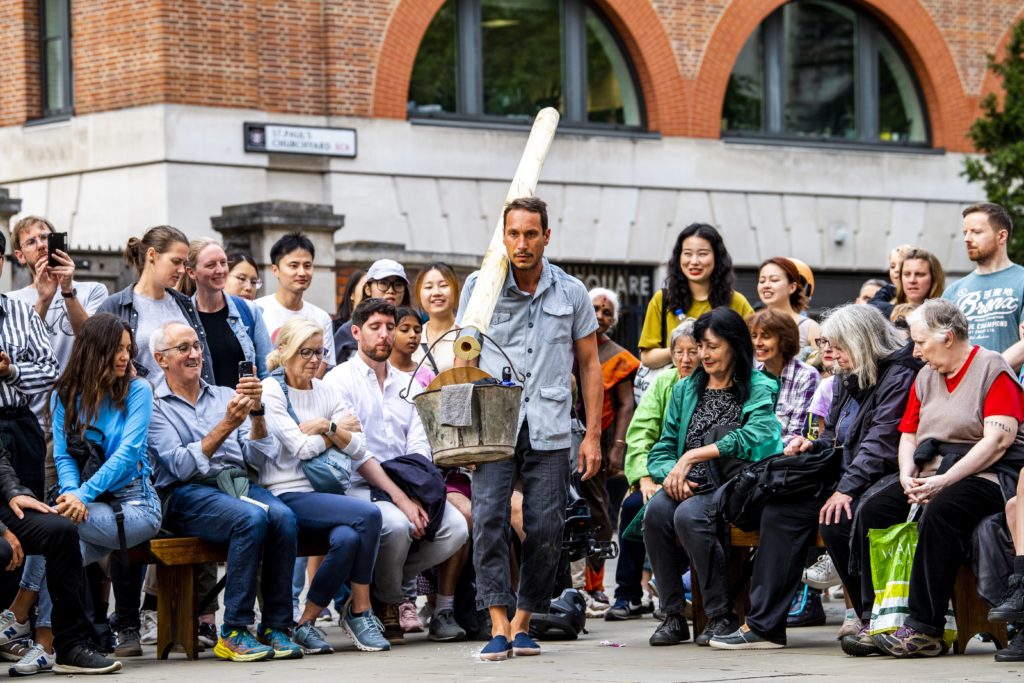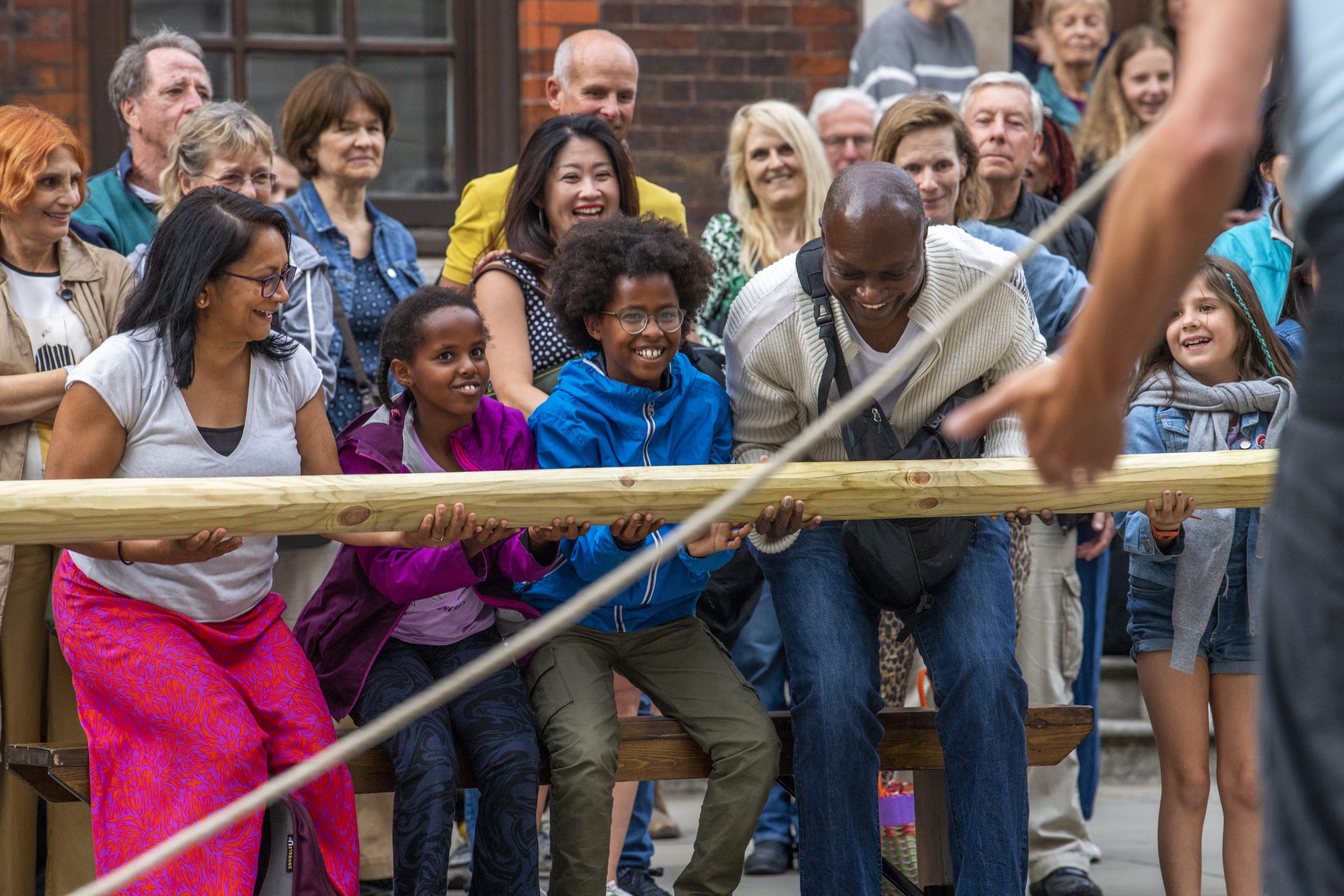Words by Francesca Matthys.
Pelat, which refers to being ‘Peeled off’ in Catalan or ‘to remove the first skin’ as shared by performer Joan Català, does just that, peeling away the layers of performance, the layers that conceal and separate performers from the audience. Us from them. The title for Català is also a signifier of the distilled nature of performance void of music, text or set.
Pelat is Joan Català’s labour of love. “A natural review of handcrafted techniques and own memories”, that he has been performing and developing for 10 years.
This is clear in its carefully crafted action and care for self and others. Català approaches the audience holding a large wooden pole or trunk. An action that is permeated with risk, he is focused and meticulous as he familiarises himself with the space. I can imagine that there have been countless different locations the work has been performed in that Català has become acquainted with and left an impact on. This impact is a result of how elements in Català’s performance such as risk and acute awareness meet in the realm of public art. It is fascinating to observe these notions, as this and care in public spaces are rare as often we are too preoccupied with our own individual worlds to recognise the subtleties of life around us. Pelat offers a performance of skill and artistry but also an opportunity to zoom in on a specific moment together, where we laugh, play, listen and learn.

Català’s large wooden pole/trunk as scenic device is glided above audience heads as he carries it on his shoulder, passed around the space to provide relief for him and, at one pinnacle moment of the work, even held upright together by the weight of four audience members handpicked to accompany him in this act. Català encourages an embodied audience throughout the work and removes any complacency of mind or body. We are constantly wondering what will become of him, us and the presence of this scenic device. This active state is not one of worry but extreme attentiveness to the world he creates.
The four audience spect-actors, in the vein of Augusto Boal, that Català employs to support him, are all masculine presenting and this poses an interesting conversation on masculinity in spaces of work. The four of them are guided by Catala through gentle rituals of wrapping each other’s waists with fabric, becoming familiar with the scenic devices and each other, singing together and ultimately trusting themselves as individuals and a collective to support Català in his final feat of climbing to the top of the held up wooden pole/trunk.
There is so much humour, joy and tenderness in witnessing this. Pelat erases the boundaries between dance, circus, theater and performance and we see this in its ability to just exist honestly in all that it is in form. Its use of rhythm, audience participation, non verbal performance and body language defies a lot of what may separate us.
A couple of years ago when I first met and interviewed Català he mentioned his relationship to the lineage of craftsmanship in his family and how it informs his work. He also recently shared: ‘My great-grandfather, my father and my brother are blacksmiths. I learnt the trade out of obligation and without much enthusiasm. When I started with the performing arts I realised that my way of understanding physical dialogue and my relationship to everything that appeared on stage (objects, people, environment) was always with a curious and artisanal look. Craftsmanship is the layer that colours my work.’
This intergenerational connection and inheritance of knowledge is present in Pelat as it allows us all to engage and share together in new skills regardless of age, background, or even experience of art.
Pelat was performed in London at the Bartholomew Fair in London from the 31 August to the 2 September 2023 and will be performed again in London on the 7 October 2023. For further details follow the artist on Instagram.
